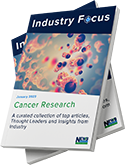A new study posted to the medRxiv* preprint server provides a protocol for the systematic review of previous publications to determine the impact of the coronavirus disease 2019 (COVID-19) pandemic on individuals with fibromyalgia syndrome (FMS).
 Study: Effects of the COVID-19 Pandemic on Individuals with Fibromyalgia – a Systematic Scoping Review Protocol. Image Credit: Jo Panuwat D/Shutterstock
Study: Effects of the COVID-19 Pandemic on Individuals with Fibromyalgia – a Systematic Scoping Review Protocol. Image Credit: Jo Panuwat D/Shutterstock
Stress and the COVID-19 pandemic
The COVID-19 pandemic has impacted people around the world in many ways, with some directly infected with the severe acute respiratory syndrome coronavirus 2 (SARS-CoV-2), whereas others experienced increased stress due to lockdowns, quarantine restrictions, and the consequences of social distancing.
In addition to these personal effects, the COVID-19 pandemic has had a particularly profound impact on the lives of patients with chronic illnesses. For example, many of these individuals, such as those with heart disease, diabetes, cancer, and obesity, are at an increased risk of severe illness if infected with SARS-CoV-2, thus necessitating these individuals to remain particularly cautious when interacting with the general public.
FMS is a painful condition that causes affected individuals to be particularly sensitive to both psychological and environmental stressors. In addition to the musculoskeletal pain that is a hallmark feature of FMS, this disorder is also characterized by fatigue, sleep, memory, and mood issues.
FMS symptoms often begin after a significant life event has occurred. For example, physical events, such as surgery, infection, or car accident, may lead to the development of FMS. FMS may also arise following various emotional events, such as childhood trauma, post-traumatic stress disorder (PTSD), or other highly stressful and/or traumatic experiences.
Emerging research has shown that the COVID-19 pandemic has caused the world to experience a “mass trauma,” with some individuals experiencing PTSD-like responses as a result of the pandemic. In fact, the stress associated with the COVID-19 pandemic has even been shown to exacerbate existing mental health issues including anxiety, depression, and psychosocial functioning. Thus, researchers have been interested in determining whether pandemic-related factors, such as previous SARS-CoV-2 infection or changes in healthcare access, may similarly worsen FMS symptoms.
Cancer Research eBook

Previous studies on the impact of the COVID-19 pandemic on FMS symptoms have produced conflicting results, with some studies reporting increased severity and frequency of FMS symptoms, while others reported no change or improvement of symptoms.
In one Italian study with 32 FMS participants, two-thirds of patients reported worsening of their symptoms according to their Revised Fibromyalgia Impact Questionnaire (FIQR) scores. Comparatively, one-third of the patients in this study reported no change or improvement in their FMS symptoms.
Thus, there remains a lack of conclusive evidence on the impact of the COVID-19 pandemic on FMS symptoms. This information is important, as it will provide additional guidance for healthcare professionals managing FMS patients following exposure to certain stressors.
The review protocol
To begin, the study protocol emphasizes the importance of including studies assessing the experience of adults with FMS during the COVID-19 pandemic, including how various pandemic-related measures such as quarantines, changes in healthcare accessibility, lockdown, and remote work impacted this patient population. Studies where participants did not have FMS before the pandemic, as well as those including patients with fibromyalgia-like symptomatology and long COVID post-COVID-19 infection, should be excluded. Mixed population studies may also be considered if more than 75% of participants had FMS.
Prospective and retrospective cohort studies, as well as analytical cross-sectional studies, case-control studies, descriptive cross-sectional studies, individual case reports, case series, and qualitative studies, may be included in the analysis.
Test words in the abstracts and titles, as well as index terms, may be used for searching numerous dases CINAHL, Embase, Medline, and PsycInfo. The reference list of all included studies will be screened for additional studies.
Unpublished studies will be searched in medRxiv, OPENGREY.EU, and clinicaltrials.gov. Thereafter, the screening of titles and abstracts will be performed by two independent reviewers.
Relevant texts will be retrieved fully, followed by their assessment by two independent reviewers. Any disagreements between the two reviewers will be resolved through consultation with a third reviewer.
Finally, the data will be extracted by two or more independent reviewers followed by their analysis. A narrative summary will also be provided, along with a tabulated presentation.
*Important notice
medRxiv publishes preliminary scientific reports that are not peer-reviewed and, therefore, should not be regarded as conclusive, guide clinical practice/health-related behavior, or treated as established information.
- Sahar, T., Jalali, A., Toupin, S., et al. (2023). Effects of the COVID-19 Pandemic on Individuals with Fibromyalgia – a Systematic Scoping Review Protocol. medRxiv. doi:10.1101/2023.01.27.23284843. https://www.medrxiv.org/content/10.1101/2023.01.27.23284843v1.full-text.
- Bridgland, V. M. E., Moeck, E. K., Green, D. M., et al. (2021). Why the COVID-19 pandemic is a traumatic stressor. PLoS One 16(1). doi:10.1371/journal.pone.0240146.
Posted in: Medical Science News | Medical Research News | Medical Condition News | Disease/Infection News | Healthcare News
Tags: Anxiety, Cancer, Chronic, Consultation, Coronavirus, Coronavirus Disease COVID-19, Depression, Diabetes, Fatigue, Fibromyalgia, Frequency, Healthcare, Heart, Heart Disease, Mental Health, Musculoskeletal, Obesity, Pain, Pandemic, Post-Traumatic Stress Disorder, Research, Respiratory, SARS, SARS-CoV-2, Severe Acute Respiratory, Severe Acute Respiratory Syndrome, Sleep, Stress, Surgery, Syndrome, Trauma

Written by
Suchandrima Bhowmik
Suchandrima has a Bachelor of Science (B.Sc.) degree in Microbiology and a Master of Science (M.Sc.) degree in Microbiology from the University of Calcutta, India. The study of health and diseases was always very important to her. In addition to Microbiology, she also gained extensive knowledge in Biochemistry, Immunology, Medical Microbiology, Metabolism, and Biotechnology as part of her master's degree.
Source: Read Full Article
